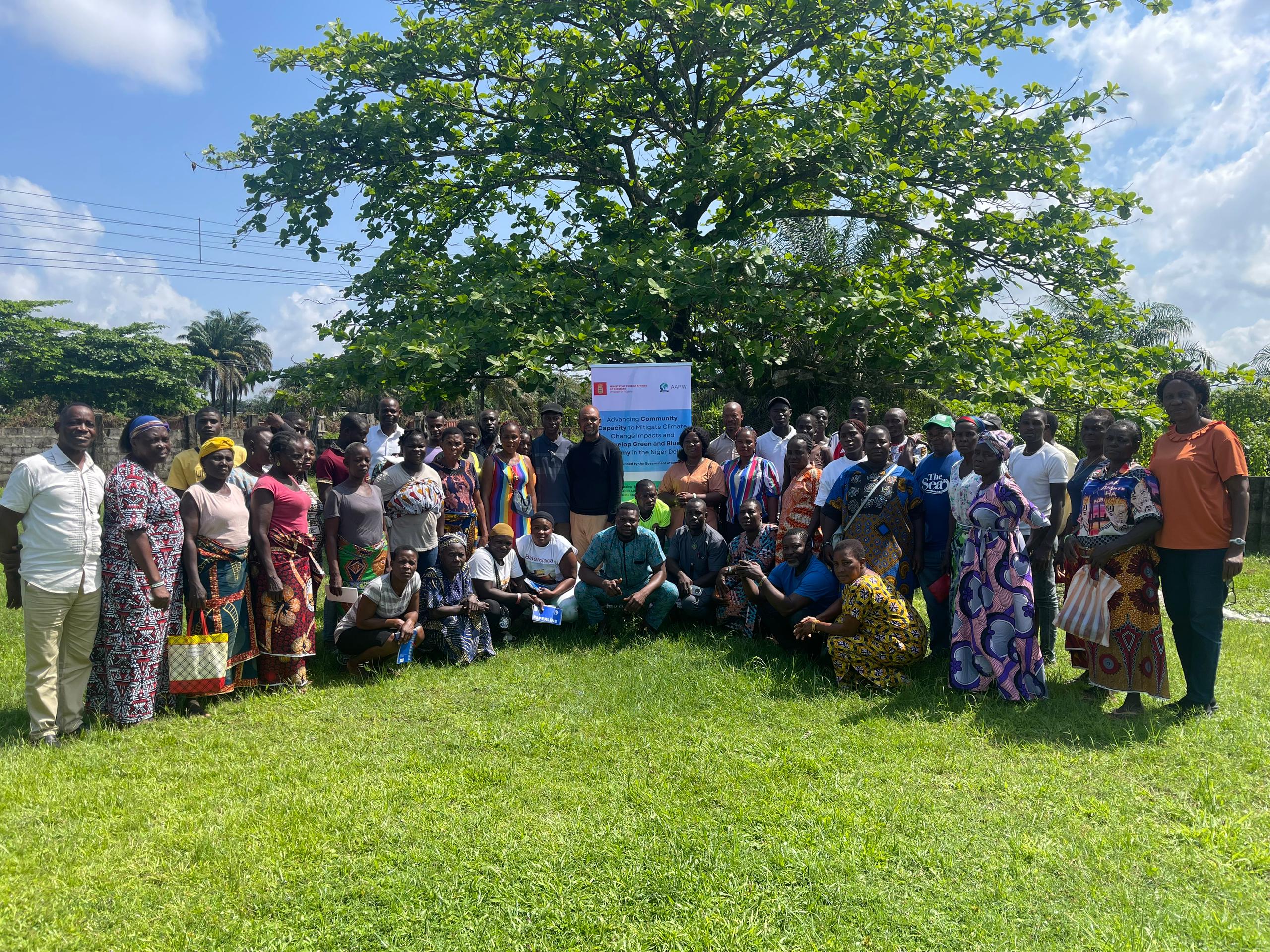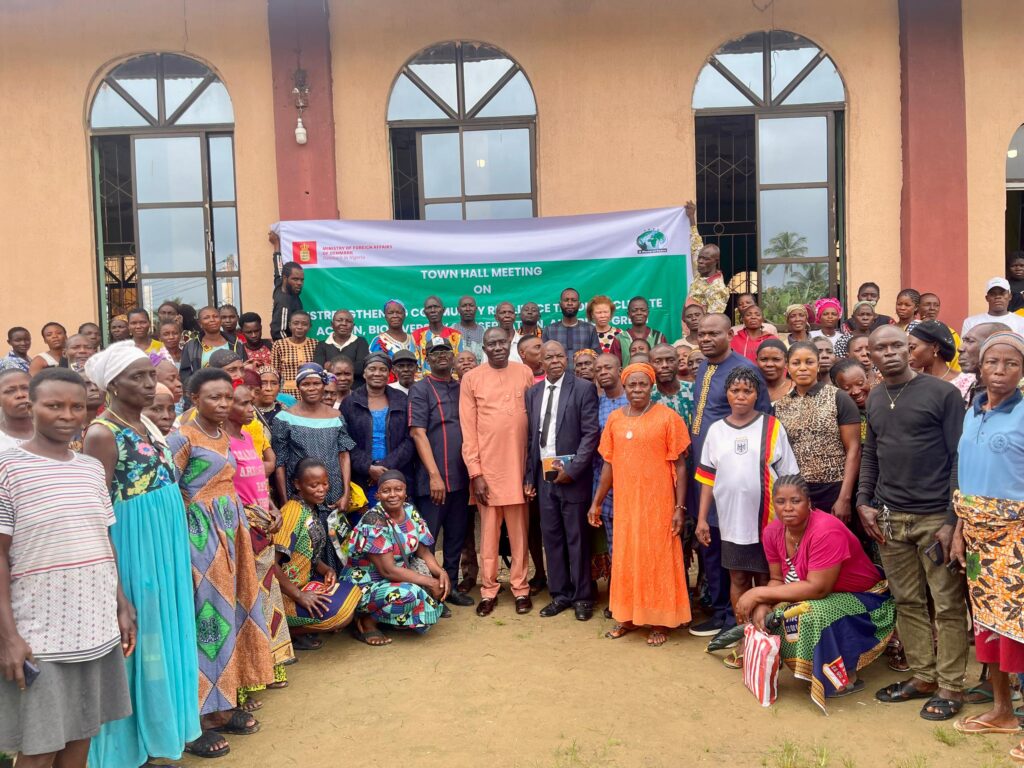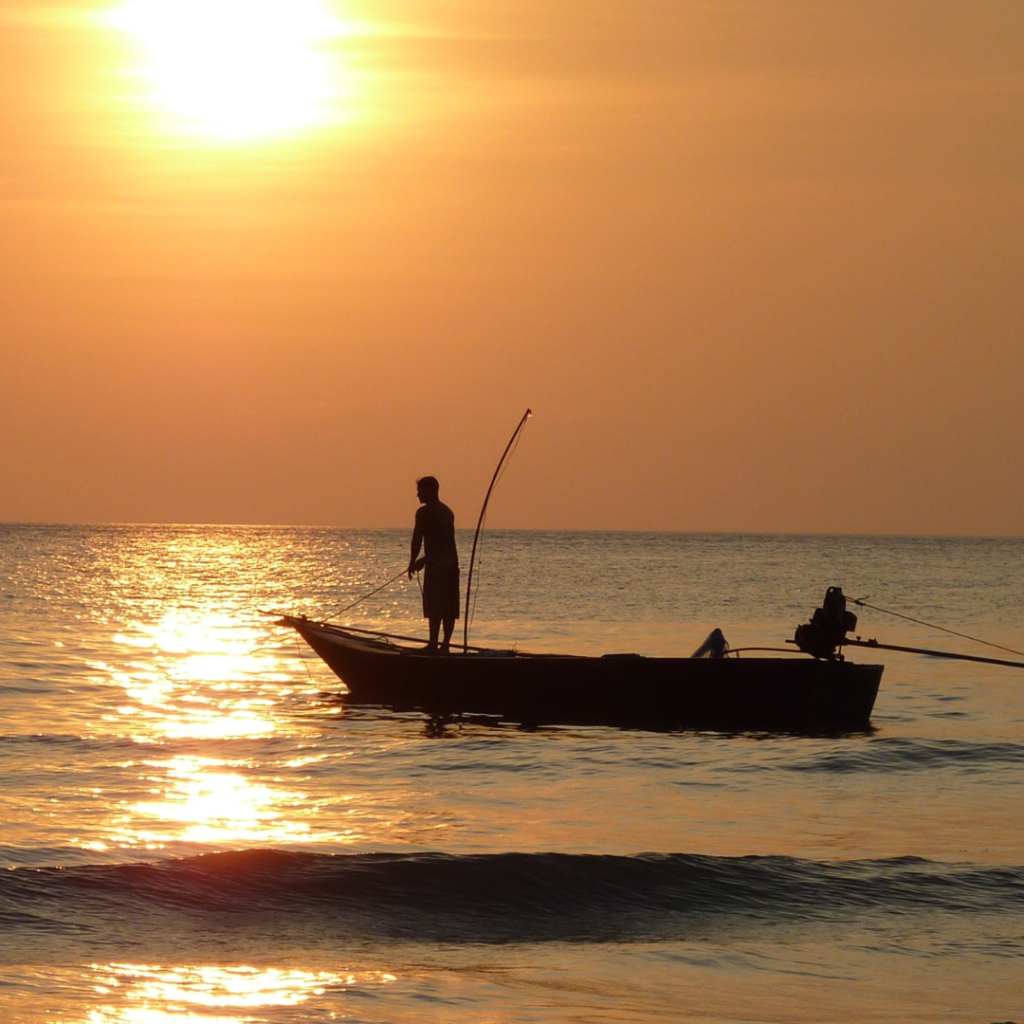The three-day climate resilience training for farmers/fisherfolk in Ogulagha Community, Burutu Local Government Area of Delta State, has concluded. Organized by Academic Associates PeaceWorks (AAPW) with support from the Embassy of Denmark in Nigeria, the training aimed to empower local farmers with sustainable practices, enhance climate resilience, and promote livelihood opportunities within the green and blue economy.
The second day of the training featured in-depth sessions on sustainable fisheries management, biodiversity conservation, and entrepreneurship development. Godspower Atangemi, Principal Livestock Officer at the Bayelsa State Ministry of Agriculture, led the session on fisheries management, emphasizing strategies such as using appropriate nets to prevent the capture of fingerlings and avoiding harmful fishing chemicals to protect marine ecosystems and public health.
Development specialist Aluzu Diepreye focused on biodiversity and marine management, talking about species and genetic biodiversity as well as the dangers of pollution, deforestation, and habitat destruction. Participants learned how crucial biodiversity conservation is to preserving natural balance. In her remarks on the topic, AAPW Senior Communications Officer Success Nwanedo emphasized the ecological importance of species like butterflies, sea turtles, and snakes, among others. According to her, these species, which are frequently misunderstood, are essential to maintaining and regulating marine ecosystems.
During a session on entrepreneurship development, Becky Ebojoh, Head of Public Relations at Delta Broadcasting Service, guided participants on identifying and building sustainable enterprises within the green and blue economies. She explored financing options, including soft loans, cooperatives, personal savings, and microgrants, while also emphasizing the significance of value chain development. Ebojoh further highlighted essential business skills such as record-keeping, business planning, and establishing connections with off-takers to ensure successful enterprise growth.
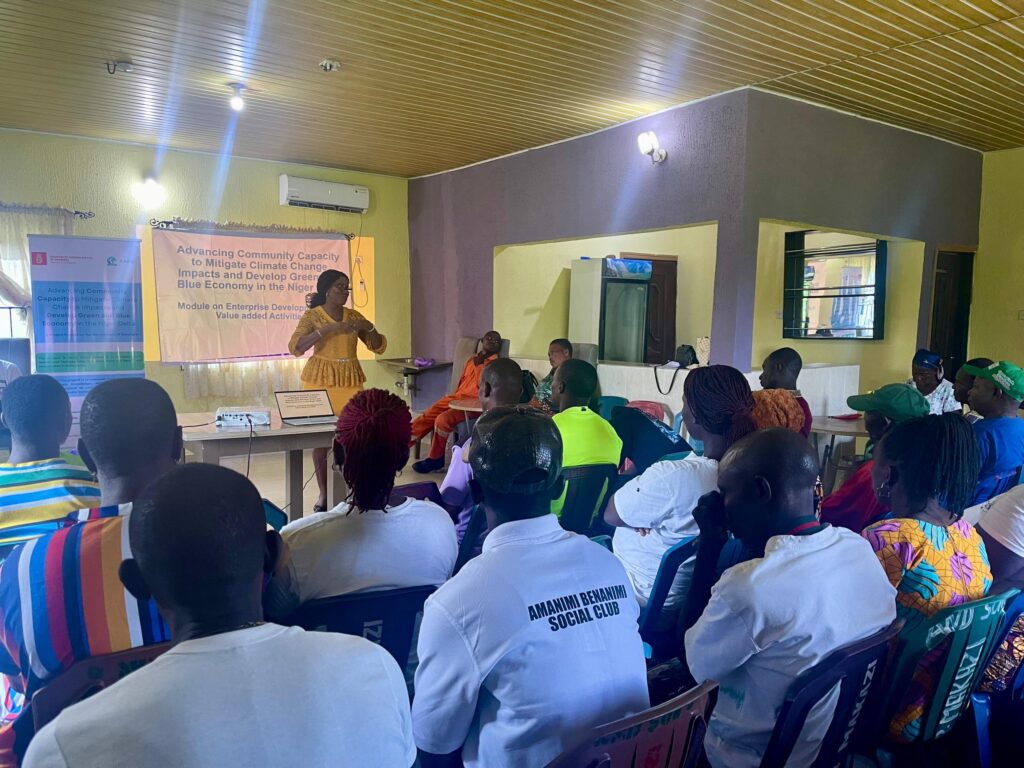
Becky Ebojoh engaging participants in a session on enterprise development
Pastor Edewor Egedegbe, Executive Director of the Value Rebirth and Empowerment Initiative, led an insightful session on renewable energy and green technology during the training. He identified key sources of green energy, including solar, wind, hydropower, geothermal, and biomass, while highlighting their numerous benefits, such as reducing greenhouse gas emissions, enhancing public health, and conserving water resources. Participants were also introduced to biofuel technologies and gained a deeper understanding of the wide-ranging advantages of integrating green energy solutions into their community.
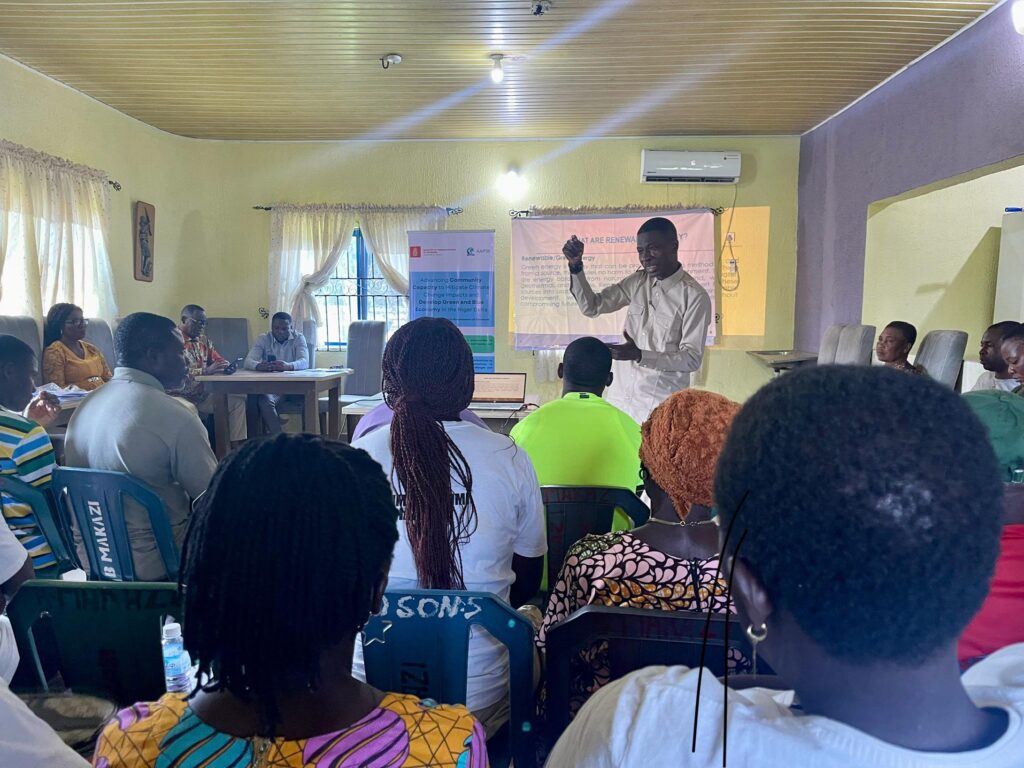
Pastor Edewor Egedegbe leading the session on renewable energy and green technology
The final day focused on advocacy and community outreach strategies. Becky Ebojoh introduced participants to the concept of advocacy, detailing its formal and informal forms. She outlined key strategies such as setting clear objectives, conducting thorough research, and leveraging media as a tool for driving change. The session equipped participants with the skills to advocate effectively for sustainable practices and policies within their community.
Meanwhile, Mr. Dauseye Torki, a Community Development and Environmental Sustainability Expert, focused on training community outreach agents. He defined community outreach and emphasized the critical roles played by extension workers in bridging knowledge gaps. Torki highlighted the essential qualities and principles of effective outreach, including planning, trust-building, and inclusive engagement of marginalized groups. He also provided participants with best practices for community entry, emphasizing the importance of strategic communication and fostering collaboration to achieve impactful results.
The conversations across all sessions promoted inclusivity and created a safe environment for participants to engage actively. By the end of the training, attendees expressed a deeper understanding of climate resilience strategies, sustainable practices, and opportunities for economic growth within their community.
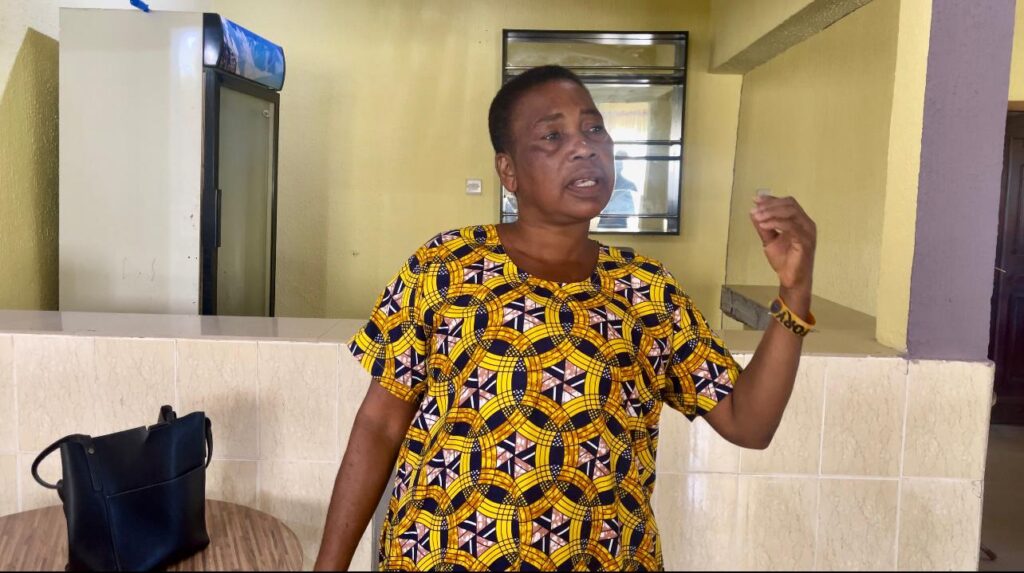

Participants sharing insights on key topics during the training
In his closing remarks, Menidin Isu, AAPW Project Manager, thanked the participants, community leaders, and the Danish government for their invaluable support in making the training a success. He urged attendees to apply the knowledge they had gained to effect transformative changes in their livelihoods, ultimately driving sustainable development within their community.


